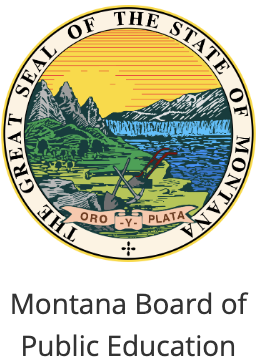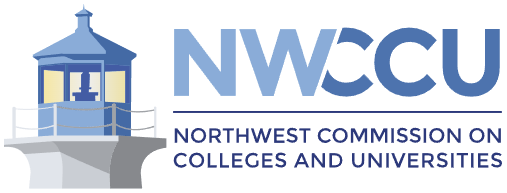Culturally Responsive Pedagogy
Content on this archived page is no longer maintained.
This page is made available by the Center for Bilingual and Multicultural Education.
Indian Education For All (IFEA) Professional Development Opportunities at MSU
Title II OCHE 2013 Improving Teacher Quality Grant:Indian Education for All Professional Development for In-Service Teachers
Abstract
In order to support stated initiatives to improve learning outcomes for students through the professional development of teachers, funding is requested to provide training in culturally responsive pedagogy for 30 in-service K-12 teachers through online class delivery through the Montana State University campus. NASX 591, Indian Education for All, is an established 3-credit graduate level course which explores the goals of Indian Education for All within a multicultural education framework and focuses on practical applications for teachers. The course is taught through the MSU Extended University in correlation with MSU Department of Education and MSU Native American Studies Department. Participating teachers will be representing targeted school districts that have been designated as deficient in providing some aspects of the educational requirements. Participants will be asked to evaluate the NASX course on the basis of implementation into their classrooms and the effectiveness of the material in order to determine if NASX591 should be delivered on a state-wide basis or form the framework for learning requirements for all K-12 teachers and higher education faculty.
Need/Goals
Indian Education for All (IEFA) is a Montana state initiative, supported in both the state constitution and law, which focuses on the importance of teaching all students about the Indigenous populations of the state, the value of understanding multicultural education and different learning styles, and on improving access for all students of Montana to higher education. Professional development in content and pedagogy are delivered by the Office of Public Instruction, the various Colleges of Education, tribal communities and other entities.
6.2% of Montana’s population is identified as American Indian, but 11.8% of K-12 students are identified as American Indian. The American Indian/Alaska Native (AI/AN) population is younger than the general population and the achievement gap is wide. IEFA hopes to lessen this gap by creating teachers who are more prepared to deal with cultural differences in learning and who are more able to present accurate information about the Indigenous peoples of Montana.
Opportunities for professional development for the teachers of Montana are critical.
The goal of this proposed project is to increase the number of adequately trained in-service teachers related to IEFA in both content and pedagogy. The project will deliver an online course for 30 in-service teachers from high need school districts in the Fall and Spring of the 2012-2013 academic year. The course is NASX 591—Indian Education for All: A Model for Culturally Responsive Pedagogy in Practice. The course is specifically designed for public education teachers who can immediately take course material and apply it into their own classrooms. This award will fund a pilot project for 30 teachers who will assist in the evaluation of the course as it applies to the teaching and learning in the classroom in hopes of developing a larger scale, state-wide opportunity for even more teachers.
Partnership
The project will be delivered through a collaboration between Montana State University’s Department of Education, Native American Studies Department in the College of Arts & Sciences, Extended University and high need public school districts from around the state. School districts that meet the requirement of at least 20% of their students’ families’ income falls below the poverty line and are not fully qualified in IEFA will be targeted. Teachers will be recruited from these schools with hopes of having representation of many different school districts, schools in rural areas, and schools on or near reservations. The Office of Public Instruction will be instrumental in selecting appropriate school districts. The instructor of the course is Dr. Jioanna Carjuzaa, an associate professor in the Department of Education while the course is designated through Native American Studies in the College of Arts & Sciences. The Extended University will provide administrative support to the project.
Program Content
The core of the project is the delivery of an online course for 30 in-service teachers from high need school districts in the Fall and Spring of the 2012-2013 academic year. The course is NASX 591—Indian Education for All: A Model for Culturally Responsive Pedagogy in Practice. The cost is determined by the Montana State Extended University in Bozeman, Montana. Tuition is $799.50, fees (including registration, program and computer) are $65.55, and the required books are $110.00 through Amazon.com. A $500 stipend will be given to each of the 30 participants who complete the requested course evaluation and attend the conference. Additional marketing for the class to ensure that the targeted school districts are represented will include phone calls, materials to the schools and direct mailings to teachers.
All 30 participants and three personnel will attend a one-day symposium on evaluating the course on its content, delivery and applicability to the classroom. Participants will be led in discussions to identify the strengths of the course in order to provide rationale for the adoption of this course for the Montana University System for teacher education and faculty and staff professional development. Funding is requested to cover the travel of 33 participants, averaging a 500-mile round-trip to Bozeman at the state reimbursement rate of .55 per mile. Lodging for one night and a meal per diem are also requested. Materials that will be disseminated at the meeting will include resources to strengthen classroom implementation and lesson plans for appropriate grades.
The principal investigator will be Dr. Jioanna Carjuzaa, an Associate Professor in the Department of Education at Montana State University. She holds a Ph.D. in Multicultural, Social and Bilingual Foundations of Education from the University of Colorado-Boulder. She teaches undergraduate and graduate courses in multicultural education and social justice in education. She serves as a co-advisor to the American Indian Council and the primary facilitator for Indian Education for All professional development opportunities for MSU faculty, staff and students. Dr. Carjuzaa will maintain primary responsibility for the grant, including organizing the course, collaborating on the development of the course evaluation, organizing and hosting the assessment conference, and final reporting. Dr. Carjuzaa will be paid administration time estimated at 100 hours plus 40% benefits.
Evaluation of the course on its impact on classroom practices will be developed, administered and analyzed by Dr. Kristen Ruppel and Brandi Foster. Dr. Ruppel is an Associate Professor of Native American Studies in the College of Letters and Science at Montana State University. She holds a Ph.D. in Anthropology from Columbia University. She is the coordinator of the online graduate certificate in Native American Studies at MSU. Ms. Foster is the Director of American Indian and Minority Achievement in the Office of the Commissioner of Higher Education for the Montana University System. She holds an M.A. in Anthropology from Iowa State University and is currently ABD in Anthropology from the University of Montana. Course evaluation will be an in-depth review of the application of the courses to the learning environment. Dr. Ruppel and Ms. Foster will be paid for developing, administering and analyzing the evaluation tool. Time is estimated at 50 hours each with a 40% benefits rate.
Administrative support will be provided through the Extended University to assist in the registration and enrollment of the 30 participants, logistics of the assessment conference, and other tasks that relate directly to the administration of this grant. It is estimated that 120 hours of administrative support will be necessary, with a compensation rate of $15.00 per hour plus 40% benefits.
Content on this archived page is no longer maintained.
This page is made available by the Center for Bilingual and Multicultural Education.
2014 OCHE Title II: Improving Teacher Quality Grant Award: Indian Education for All—Culturally Responsive Pedagogy
This is my second Title II: Improving Teacher Quality Grant Award. Last year I was awarded $79,000.00. Here is the information on this year’s grant award.
Total Requested: $85,907.00
Partners include: MSU Dept of Education, MSU College of A&S/NAS Dept, MSU Extended University, and School Districts across Montana.
Project: Thirty in-service k-12 teachers and administrators from 20+ school districts across Montana will take a 3 credit Native American Studies online graduate course on Culturally Responsive Pedagogy in Practice to support the implementation of Indian Education for All. The teachers/administrators will also participate in a face-to-face three-day workshop to explore instructional strategies, review resources/materials, and network to further strengthen their content knowledge and skills.
The most recent annual Indian Education for All (IEFA) professional development conference for K-12 teachers was held in late June 2015 with 31 participants, all scholarship recipients who had attended Carjuzaa’s NASX graduate online course titled, Indian Education for All: A Model for Culturally Responsive Pedagogy. This annual conference brings teachers from Montana schools to Bozeman and shows them how to incorporate Indian education into their classroom curriculum. This is the second Title II: Improving Teacher Quality grant on IEFA Carjuzaa has been awarded. To date, 60 k-12 teachers have participated in the NASX courses and attended the summer conference. Ed Schupman, Director of Education at the National Museum for the American Indian, Jennifer Stadum, IEFA Implementation Specialist from the Office of Public Instruction, and Michael Munson, ILEAD student and instructor at Salish Kootenai College, were among the speakers.
2015 IFEA Workshop: Transcending Classrooms- Native American Studies Graduate Courses Support the Implemetation of Indian Education for All
The fall 2015 annual Indian Education for All (IEFA) professional development workshop focused on Native American Studies (NAS) graduate courses at MSU that support the implementation of IEFA. The full-day workshop, facilitated by Dr. Jioanna Carjuzaa, featured faculty who presented overviews of the classes they teach for the 12 credit, graduate online certificate in NAS. To conclude, a panel of instructors and moderator Dr. Walter Fleming, NAS department head, discussed the challenges and benefits of conducting classes online.
Content on this archived page is no longer maintained.
This page is made available by the Center for Bilingual and Multicultural Education.



